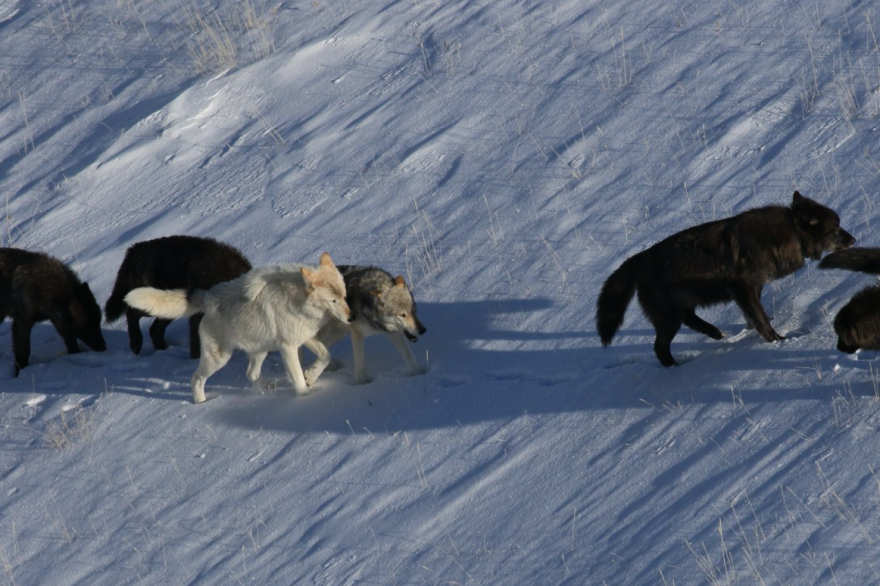The decades-long debate continues regarding whether wolves in the Northern Rocky Mountains should be federally protected.
According to several conservation groups, the U.S. Fish and Wildlife Service (USFWS) was supposed to decide whether wolves in the Northern Rockies should have endangered species protections or not by May 2022, due to a petition the groups filed. The groups are now suing the agency to force a decision.
The gray wolf has been listed as protected under the Endangered Species Act (ESA) on and off since 1978. Earlier this year, the species regained federal protection everywhere except the Northern Rocky region, which includes Idaho, Montana, Wyoming, eastern Washington, eastern Oregon and northern Utah.
Conservation groups initially filed a petition in May 2021 requesting the USFWS to reconsider the status in the Northern Rockies, specifically highlighting wolf hunting regulations in Montana and Idaho.
“Both states implemented new mechanisms to kill wolves and increase the number of wolves that a single individual can kill,” Andrea Zaccardi, the legal director for the Center for Biological Diversity’s Carnivore Conservation Program, said. “In Idaho, that's actually completely unlimited now. So, if an individual stumbled upon a pack of wolves, they could theoretically wipe out the entire pack.”
In a report released last fall, the USFWS found that “the petitioners present substantial information that potential increases in human-caused mortality may pose a threat to the gray wolf in the western U.S. The Service also finds that new regulatory mechanisms in Idaho and Montana may be inadequate to address this threat.”
Wyoming, as well as Oregon, Utah and Washington, are involved because the Northern Rocky Mountain wolves roam these areas, as well.
Following the report, the USFWS did not issue a decision on the ESA protection for wolves in the region. So, conservation groups filed a lawsuit Aug. 9, because they argue that the USFWS missed the deadline for decision, which they said is one year after filing a petition.
Zaccardi said the case is time sensitive.
“Meanwhile, wolves are still being persecuted across the Northern Rockies in extremely large numbers and extremely cruel ways,” she said.
However, proponents of hunting wolves said the populations are too high in the region, and it is necessary for livestock protection. An estimated 314 wolves roam Wyoming, including Yellowstone National Park and the Wind River Reservation.
Wyoming’s Governor Mark Gordon is against changing the state’s wolf management program, which includes a hunting season in northwest Wyoming set at 47 wolves last year, and unregulated hunting in a “predator zone,” which includes about 85 percent of the state.
“Wyoming has managed wolves according to our plan, and that plan has been sufficient to satisfy wolf population targets while allowing producers to take appropriate measures to protect livestock,” Gordon said in a 2021 press release. “Ours was a hard-fought and careful process that resulted in a unique plan that works. If it’s not broken we don’t need to fix it.”
If wolves were relisted under the ESA, the wolf management plans in all six states would need to be redone.
Zaccardi said wolves should have priority over livestock.
“The livestock industry has a responsibility to protect their cattle when they're using public lands, killing wolves that are native species on the land should not be the answer,” Zaccardi said.
Wolves either killed or injured 109 head of livestock in Wyoming last year, according to the Wyoming Game and Fish Department.
Zaccardi said the court case will likely take place over the winter, unless the USFWS issues a decision prior.









